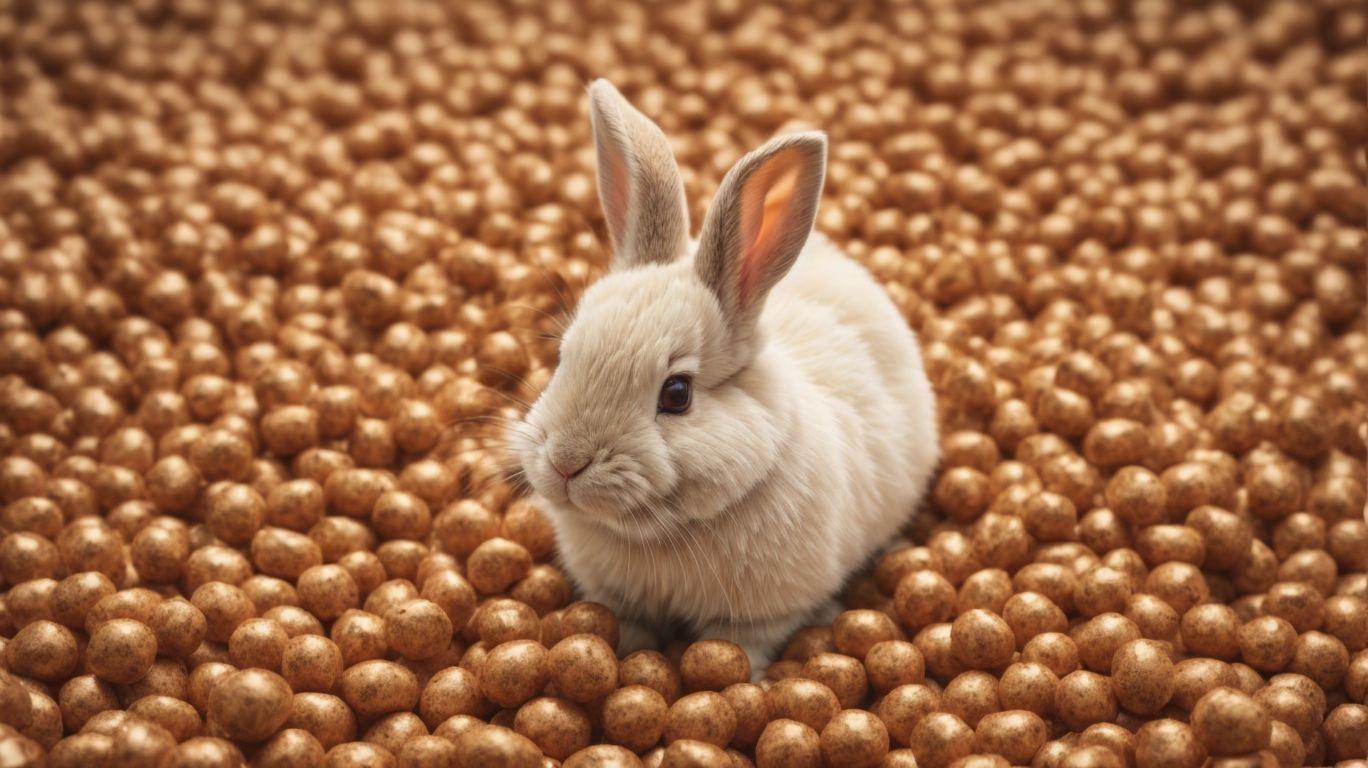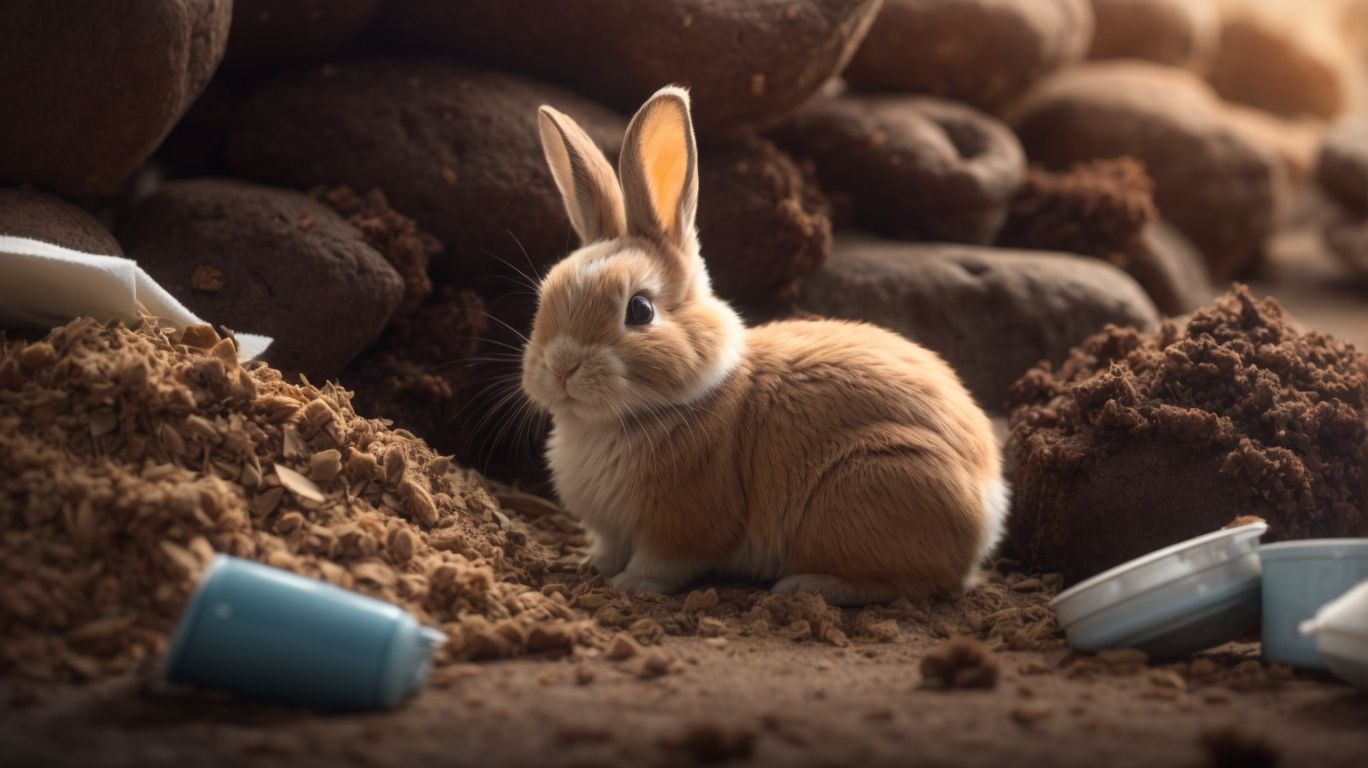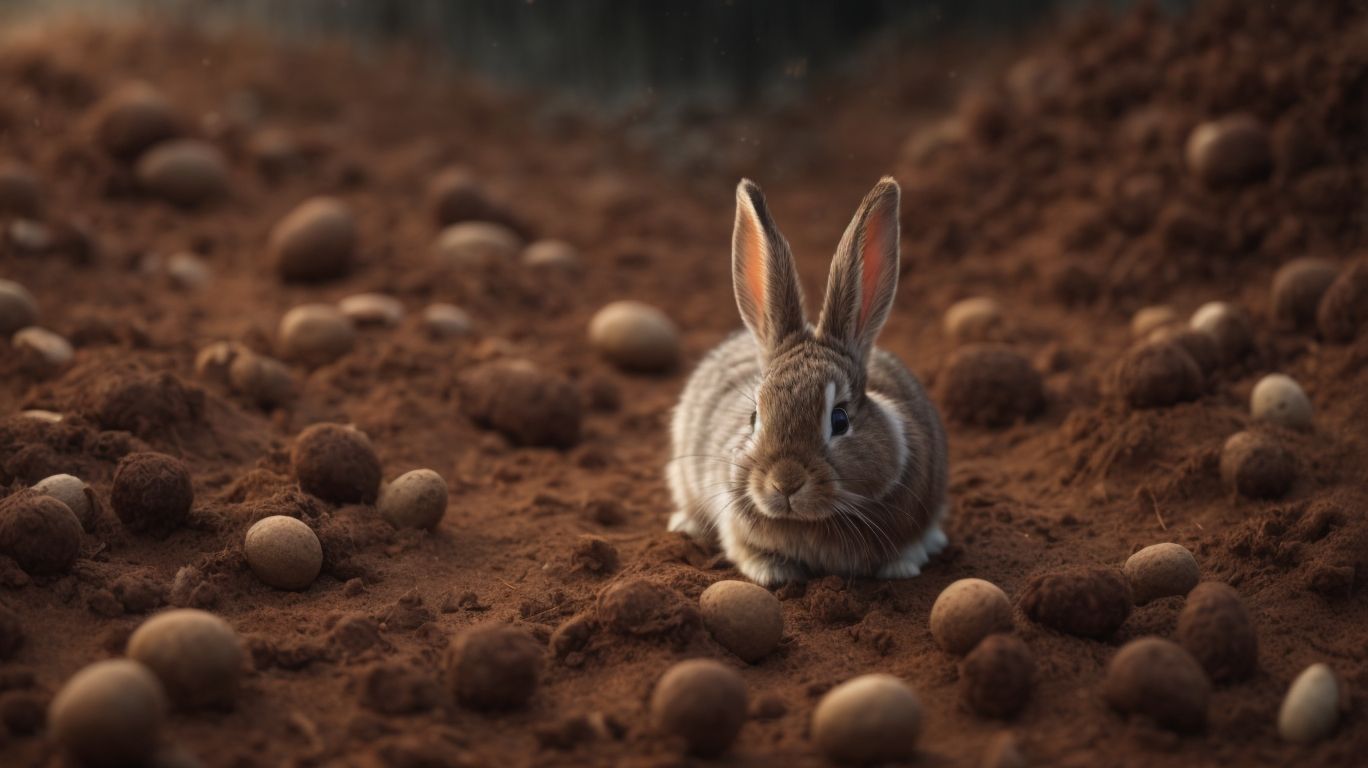Can Bunnies Eat Their Own Poop
Have you ever wondered why bunnies eat their own poop?
We will explore the fascinating world of a rabbit’s digestive system.
Understanding what cecotropes are, discussing the nutritional benefits and potential health issues associated with bunnies eating rubber.
If you’re a bunny owner or simply curious about these adorable creatures, this article is a must-read.
Let’s dive in and discover the truth behind this intriguing bunny behavior!
Key Takeaways:
Can Bunnies Eat Their Own Poop?
Credits: Bunnyeat.Com – Matthew Moore
It is commonly observed that bunnies consume their own feces, a behavior known as coprophagia.
This behavior may seem peculiar, but it plays a crucial role in the digestive process of rabbits. When bunnies eat their soft, partially digested feces, known as cecotropes, they actually extract essential nutrients like Vitamins B and K, which were not fully absorbed in the initial digestion. This process of re-ingesting the specialized feces helps rabbits maintain a healthy gut flora balance and maximize nutrient absorption from their rabbit poo.
Understanding the Digestive System of Bunnies
The digestive system of rabbits is designed to efficiently process fibrous materials like hay to extract essential nutrients.
Rabbits have a complex digestive anatomy that enables them to access the vital nutrients contained in hay. Their digestive process begins in the mouth where hay is ground down by teeth designed for efficient chewing. From there, the partially digested material moves through the esophagus into the stomach. Contrary to popular belief, rabbits do not have a multi-chambered stomach like ruminants but a simple one, making the digestive process faster.
What is the Cecotrope?
Cecotropes, also known as caecotrophs, are nutrient-rich pellets produced by rabbits through a unique fermentation process in the cecum.
These specialized droppings are essential for rabbits, as they contain undigested fibers, proteins, vitamins, and other nutrients that are crucial for their well-being. When a rabbit consumes its cecotropes directly from the anus, it re-ingests these vital nutrients and allows for better absorption in the digestive system. This process not only promotes optimal digestion but also helps in maintaining a healthy gut flora and overall good health for the rabbit.
Why Do Bunnies Eat Their Own Poop?
Bunnies engage in coprophagia to re-digest soft, sticky night feces that are rich in special nutrients essential for their well-being.
These soft feces, called cecotropes, contain high amounts of proteins, vitamins, and minerals that are not fully digested during the initial pass through their digestive system. By consuming cecotropes, rabbits can extract these vital nutrients, effectively allowing them to maximize their nutritional intake. This behavior is particularly crucial for rabbits as it aids in maintaining a healthy gut flora balance and supports proper digestion. Through coprophagia, bunnies efficiently recycle these valuable nutrients, highlighting the adaptive nature of these furry creatures.
Is It Safe for Bunnies to Eat Their Own Poop?
While it might seem unusual, allowing bunnies to consume their cecotropes is crucial for their health as it helps them digest essential vitamins and prevents underlying health problems.
Many people are surprised to learn that bunnies engage in coprophagy, the act of consuming their soft cecotropes. These special droppings are rich in beneficial bacteria and nutrients that aid in the digestive process. By reingesting their cecotropes, rabbits improve their digestive efficiency and ensure optimal vitamin absorption from their food. This unique behavior is a natural instinct among rabbits and serves as a vital part of their digestive health.
However, improper diet or stress can lead to issues such as cecotropes being produced in excess or not being consumed at all. In such cases, health problems like digestive disturbances and nutrient deficiencies may arise. It’s crucial for bunny owners to monitor their pet’s cecotrope consumption and diet to prevent any potential health issues.
What Are the Nutritional Benefits of Eating Cecotropes?
Consuming cecotropes provides rabbits with vital nutrients, aids in fermentation processes, and promotes good digestive health.
Cecotropes are rich in essential nutrients such as proteins, vitamins, and minerals, which are crucial for the overall well-being of rabbits. The fermentation benefits of cecotropes help in breaking down complex carbohydrates and enhancing nutrient absorption in the digestive system. By regularly consuming cecotropes, rabbits can maintain a healthy gut microbiome, leading to improved digestion and nutrient utilization. This natural process ensures that rabbits receive the optimal nutrition necessary for their growth and vitality.
Can Eating Cecotropes Cause Health Problems?
Excessive consumption of cecotropes can lead to obesity, medical issues, and potentially trigger diseases in rabbits.
While cecotropes are an essential part of a rabbit’s diet as they provide vital nutrients, overeating them can result in serious health consequences. The excessive intake of cecotropes, which are rich in nutrients, can lead to an imbalance in the rabbit’s digestive system, potentially causing weight gain and leading to obesity.
The medical issues that may arise from overindulging in cecotropes include gastrointestinal problems, nutrient deficiencies, and disruption of the gut flora. These disruptions can impact a rabbit’s overall health and wellbeing, making them more susceptible to various peanut consumption risks.
In the long run, the risks of developing diseases such as liver disease, diabetes, and metabolic disorders significantly increase with the habit of overeating cecotropes. It is crucial for rabbit owners to monitor their pet’s cecotrope consumption to prevent these detrimental health outcomes.
How to Tell If Your Bunny is Eating Too Many Cecotropes?
Monitoring your bunny’s condition for signs of excessive cecotrope consumption is essential, and consulting a vet for guidance is recommended.
Common signs of excessive cecotrope consumption in rabbits include messy and damp fur around the anus, a decrease in appetite, and behavior changes such as lethargy or hiding. To learn more about whether bunnies can eat themselves to death, click here.
If you notice these symptoms, it is crucial to seek vegetarian assistance promptly to address potential underlying health issues.
Regularly observing your rabbit’s feces and behavior is key to monitoring your pet’s health and ensuring their well-being.
What to Do If Your Bunny is Eating Too Many Cecotropes?
If you notice your bunny consuming excessive cecotropes, consider adjusting its diet, increasing hay intake, and ensuring proper grooming to prevent further issues.
One effective way to manage cecotrope overconsumption in rabbits is by gradually introducing more hay into their diet. Hay plays a crucial role in a rabbit’s digestive system, aiding in the proper functioning of their gastrointestinal tract. By offering a variety of high-quality hays, such as timothy, orchard grass, or meadow hay, you can help regulate their digestive process and reduce the temptation to overconsume cecotropes.
Plus dietary adjustments, regular grooming sessions are essential for maintaining your rabbit’s overall health. Grooming not only prevents fur blockages that may contribute to cecotrope overconsumption but also strengthens the bond between you and your pet. Make sure to brush your bunny’s coat frequently, especially during shedding seasons, to minimize the risk of hair ingestion and subsequent digestive issues.
Adjust Your Bunny’s Diet
Making appropriate changes to your bunny’s diet can help prevent excessive cecotrope consumption and maintain optimal calcium levels.
One way to regulate nutrient intake is by ensuring your bunny has access to a balanced diet rich in high-quality hay, fresh veggies, and a controlled amount of pellets.
- Limiting sugary treats and starchy foods can also contribute to preventing overeating of everything bunnies eat.
- It is crucial to provide your bunny with a constant supply of fresh water to aid digestion and mineral absorption.
Proper calcium balance in your bunny’s diet can be maintained by offering a variety of calcium-rich sources, such as leafy greens, broccoli, and fortified pellets. By paying attention to these dietary adjustments, you can help ensure your bunny stays healthy and happy for years to come.
Increase Hay Intake
Increasing hay intake can enhance hydration levels and reduce the likelihood of excessive cecotrope consumption, promoting better digestive health in rabbits.
Hay is an essential element of a rabbit’s diet as it aids in maintaining their gut health by keeping the digestive system running smoothly. By consuming more hay, rabbits also tend to drink more leaves, which is crucial for their overall well-being and hydration.
Monitoring a rabbit’s diet through a microchip allows owners to track changes in eating habits and ensure they are getting the necessary nutrients. It’s interesting to note that like birds, rabbits have specific dietary needs that require a balance of fiber, protein, and other nutrients to thrive.
Consult a Rabbit Nutrition Expert
Seeking advice from a rabbit nutrition expert, such as Dr. Laurie Hess in Westchester County, can provide specialized care and tailored solutions for managing cecotrope-related concerns.
Dr. Laurie Hess, renowned for her expertise in exotic pet care, can offer invaluable insights into optimizing your rabbit’s diet to prevent or address cecotrope issues. By consulting with a specialized professional like Dr. Hess, you can ensure that your rabbit receives the balanced nutrition it needs for optimum health. Her individualized approach may include dietary adjustments, supplements, and lifestyle recommendations tailored to your rabbit’s unique needs.
Conclusion
Credits: Bunnyeat.Com – Bradley Lee
It is normal for rabbits to eat their own poop as part of their diet, and this behavior is essential for maintaining their health, especially in exotic pets like reptiles and birds.
When rabbits consume cecotropes, also known as night feces, they are actually re-ingesting important nutrients such as vitamins and proteins that were not fully absorbed during their initial digestion. This process aids in maximizing the utilization of essential nutrients for their overall well-being. This unique behavior is particularly beneficial for exotic pets like reptiles and birds that rely on highly nutritious diets to thrive. Therefore, although it may sound peculiar, this practice plays a crucial role in the health and nutrition of these animals.
Is It Normal for Bunnies to Eat Their Own Poop?
The consumption of cecotropes is a normal condition in rabbits as it aids in maintaining a balanced diet and ensures proper nutrient absorption.
Rabbits are hindgut fermenters, relying on cecotropes to reingest nutrients after the initial digestion process. These soft feces are rich in vitamins, proteins, and other essential elements that are crucial for their well-being. By consuming cecotropes, rabbits effectively extract maximum nutrition from their food, making the most of their diet. Without this behavior, rabbits might face deficiencies and health issues due to inadequate nutrient absorption. Therefore, the regular consumption of cecotropes plays a vital role in meeting their dietary requirements and promoting overall health.
What are the Other Types of Rabbit Poop?
Understanding the various types of rabbit poop is important as it can provide insights into their overall health and behavior, helping to identify potential health problems early on.
One type of rabbit feces to observe is cecotropes, small, shiny, and sometimes clustered droppings that rabbits usually ingest directly from their bottom to ensure full nutritional digestion. The presence of cecotropes is a positive sign as it indicates a healthy digestive system and proper dietary habits.
On the other hand, if you notice hard, dry pellets, it might imply dehydration or an inadequate diet, while soft, sticky feces could indicate parasites or gastrointestinal issues. Monitoring your rabbit’s poop behavior regularly is vital in maintaining its health and catching potential problems before they escalate. Can bunnies eat honey?
Frequently Asked Questions
Can Bunnies Eat Their Own Poop?
Yes, bunnies can eat their own poop, but it’s not recommended as a main source of nutrition.
Why do bunnies eat their own poop?
Bunnies eat their own poop as a way to recycle nutrients and aid in digestion.
Is eating poop harmful for bunnies?
No, eating their own poop is a natural behavior for bunnies and is not harmful to their health.
Can bunnies survive on a diet of only poop?
No, bunnies require a balanced diet of hay, fresh vegetables, and pellets to stay healthy. Eating only poop does not provide all the necessary nutrients.
Is it normal for bunnies to eat their own poop?
Yes, it is a normal behavior for bunnies to eat their own poop. It’s a natural instinct that helps them maintain a healthy digestive system.
Do all bunnies eat their own poop?
Yes, all bunnies, both domestic and wild, engage in the behavior of eating their own poop for nutritional benefits.



